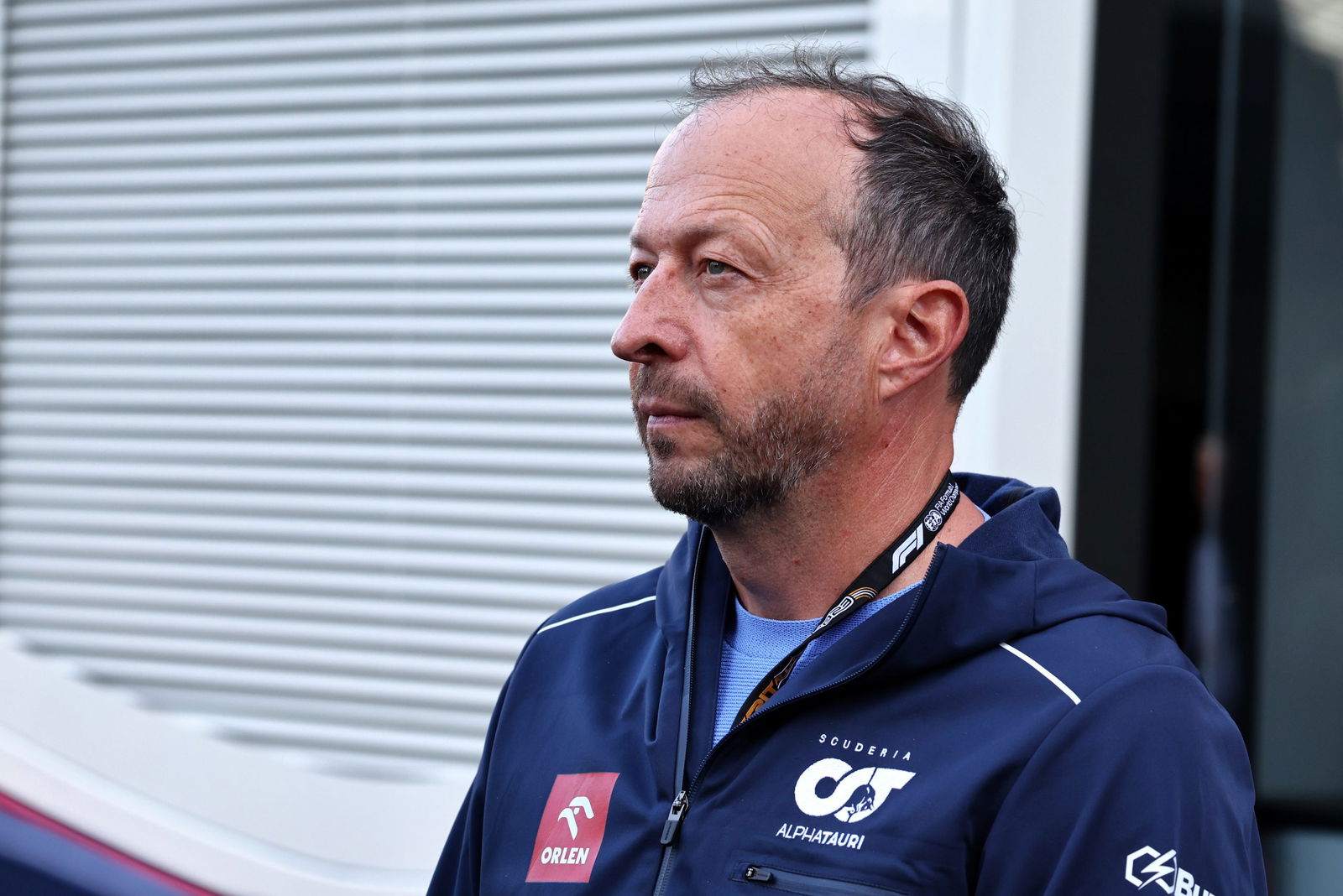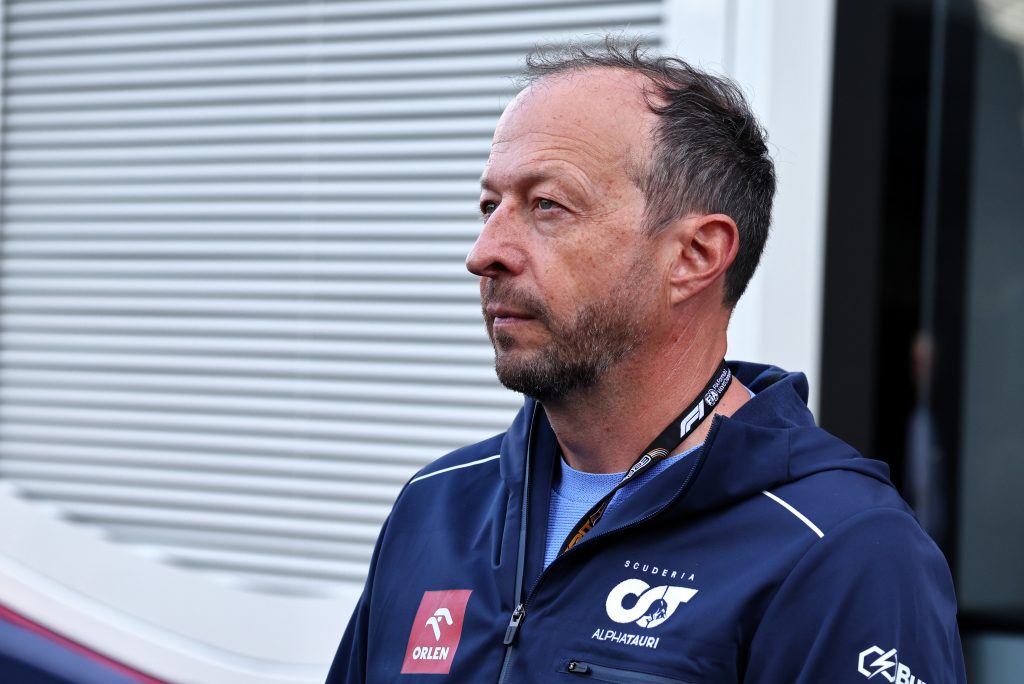

Two months ago in Abu Dhabi, I interviewed Peter Bayer, CEO of the team that was then known as AlphaTauri to review his short time in office and to look ahead at what the future had in store.
At that stage, my Speedcafe colleague Mat Coch had unearthed the fact the team looked set to be rebranded as ‘Racing Bulls’, given the name and a new logo had been trademarked earlier in the year.
We were also aware new sponsors were being lined up, but unsure at the time as to whom, with the team seeking to move away from the AlphaTauri branding of the previous four years.
That name had replaced Toro Rosso, which had been in effect since 2006 when Minardi was bought out by Dietrich Mateschitz who, in 2020, opted to use the team as a marketing flagship for his fashion brand.
In speaking to Bayer, who was aware of our story at the time, I initially enquired as to the reasoning behind the latest rebrand.
Given he knew the names of the new sponsors, but naturally he gave nothing away, his answer then remains pertinent today in light of the Visa and Cash App names that will be adorning the cars this year, with the livery due to be unveiled in Las Vegas on February 8.
“Well, it’s manifold,” he began. “First of all, there was a strategic decision from the owners to keep the team, to keep developing the team, but also, they have expectations.
“They want us to perform on the sporting side, but also to perform on the commercial side, more than we have done in the past when Toro Rosso was, I think, a 99 percent sort of Red Bull-branded car, given the bull and the colours, and AlphaTauri was 95 percent the clothing brand owned by Red Bull.
“Now, moving forward, as I said, we have to deliver on different levels, and to achieve that, we also felt that we need a new identity, something that is unique to the team.
“We want stability, and we want to be a platform for sponsors, and associated with with top brands.
“Once those brands, in five or 10 years, move on, we want to keep our identity because we believe it is also important for the team, in terms of developing equity value, which is a big topic today when you see investors coming into the sport, buying stakes in teams, or trying to buy teams.”
Bayer then referenced Williams, which was sold to Dorilton Capital in August 2020 for a reported figure of US$200 million. As he pointed out, “recently we’ve seen evaluations (for F1 teams) of close to a billion”.
In June, Hollywood stars Ryan Reynolds, Rob McElhenney, and Michael B Jordan were announced as being part of a consortium that bought a US$200m stake in Alpine, valuing the team at US$900m. Rory McIlroy, Anthony Joshua and Patrick Mahomes have since joined the party.
With that in mind, no surprise then that the board behind the team opted to remain in F1, but recognising for it to grow, it required a new identity away from its Red Bull roots of the past 18 years.
“We believe, with the way Formula 1 is developing and will continue to develop, these values will grow,” said Bayer.
“For that, you need to have an identity, but the identity is not only a commercial topic, it’s also for the team.
“It’s very important for us, for the team, and for the talent we want to find, to understand who they work for, who their employer is because we spend our lives here.
“We can’t invest money into the company, but we invest our lives into it, in terms of time and effort, and you want to know who you are doing that for.
“So the identity has a massive impact for everyone, and we’re very happy to move forward on that.”
As Bayer had mentioned earlier in the interview, the identity of Toro Rosso was 99 percent linked to Red Bull, and AlphaTauri 95 percent. With the new sponsors, he indicated that figure will be radically different.
He confirmed that “Red Bull and the bull” will still play an important role but to a much lesser extent, certainly not “as dramatic as in the Toro Rosso days”.
He added: “It’s difficult to put a number on it. Maybe one-third of the car is Red Bull, and two-thirds our other partners. Maybe that’s a ballpark figure.”
Whatever will be unveiled on February 8, the board will likely care little about the reaction so far to the new team name, and instead will be rubbing its hands with delight at the continued growth in its value.





















Discussion about this post